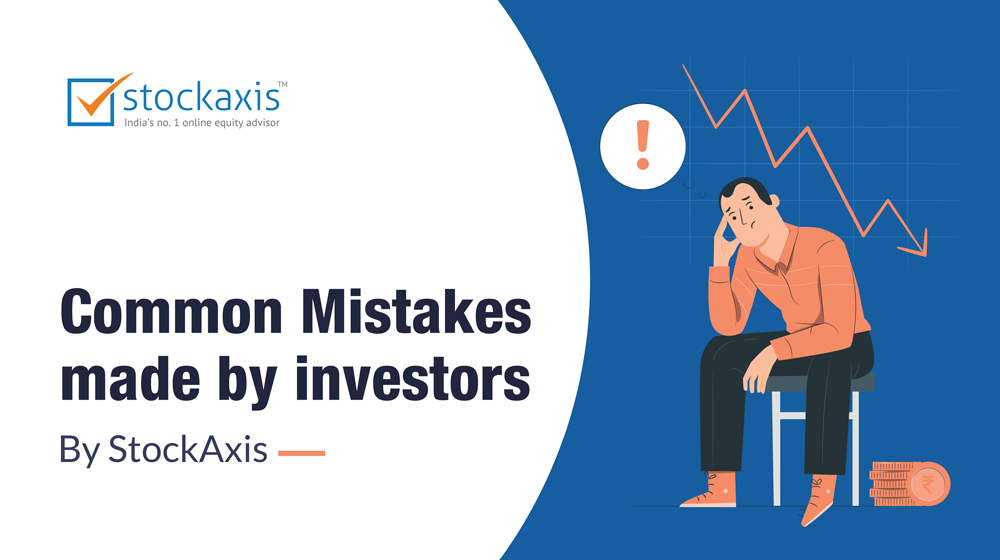Finding Great Companies
In this section, we’ll introduce you to time-tested techniques for identifying outstanding investment opportunities.
First Glance
The following chapters will guide you on how to find great companies to invest in. These chapters are designed to help you start thinking like an investor.
Before purchasing shares, you’ll need to conduct thorough research to ensure you are investing in well-managed businesses. We firmly believe in the principle of investing in what you know. You can take it a step further by adopting the philosophy: "Buy what you believe in."
As a consumer, you’ve interacted with numerous businesses throughout your life, from large multinationals to your local grocery store. Your first step in finding great companies is to look at the companies you, as a consumer, prefer.
- What brand of sportswear do you buy?
- What food do you always have in your fridge?
- What websites do you visit most frequently?
Chances are many of these are publicly listed companies in which you can buy shares.
Leverage your industry knowledge from your own job. If you work in healthcare, you likely have insights that others don't. If you work in IT, you probably know the best companies for network solutions, cybersecurity, or e-commerce software.
Extend your research by asking family and friends about their preferences. If you have a friend in retail, ask about the best-selling items. Observe which restaurants have the longest lines. Use this collective knowledge to create a list of companies you’re interested in.
Remember, just because you like a company doesn’t mean it’s a good investment. For that, we need to dig deeper.
Company Culture & Management Analysis
When analysts discuss good investments on television, they often mention earnings figures, growth numbers, and ratios. While financial analysis is crucial, company culture is equally important.
The background of the management team is a critical aspect often overlooked in investment decisions. Management analysis is essential for evaluating any company. Two key aspects to consider are:
- Experience and Execution: The management’s ability to run the business effectively.
- Vision and Sincerity: Their future vision for the company and their dedication to achieving it.
If these traits are missing, investing in that company can be risky. Ambitious but unfair management should be a red flag. Understanding these points is fundamental to assessing management quality.
Visionary Leaders
Company culture and leadership are vital for qualitative analysis. Unlike quantitative data, information about management is not found in balance sheets or cash flow statements. However, it is crucial for identifying great investments.
Visionary leaders can transform businesses and take them to unprecedented heights. For instance, when Godrej Consumer hired Sudhir Sitapati as managing director and CEO, its stock price rose by 21% in a single trading session, demonstrating the impact of leadership on stock prices.
When you invest in a company, you’re betting on the people in charge to grow your investment. Research the CEO before investing. If that person personally approached you for investment in their business venture, would you trust them with your hard-earned money?
Many of the greatest innovators and thinkers lead publicly traded companies. With leaders like Narayan Murthy of Infosys, Dhirubhai Ambani of Reliance, Jamsetji Tata of the Tata Group, and Azim Premji of Wipro, why settle for anything less than the best?
Competitive Advantage
Legendary investor Warren Buffett often emphasizes investing in companies with strong competitive advantages, often referred to as “moats”.
In the context of investing, a moat is akin to the deep, wide ditch surrounding a castle, fort, or town—a defensive barrier that protects against competition and ensures sustained market dominance and profitability.
A company with a wide moat possesses sustainable competitive advantages that allow it to fend off competitors and maintain its market position. Conversely, companies with narrow or no moats are vulnerable to competitive pressures, which can erode profitability and market share over time.
For investors, identifying companies with strong moats is a prudent strategy. These companies are less likely to face intense competition and are better positioned to generate consistent profits and cash flows.
Example: Central Depository Services (CDSL)
An illustrative example is Central Depository Services (CDSL), the only listed depository in India, benefiting significantly from the structural growth in capital markets. With limited competition—NSDL being the other major player, yet to be listed—CDSL has seen its shares appreciate by 250% in the past year, underscoring the advantage of operating in a relatively uncompetitive landscape.
Evangelists
Beyond competitive advantage, another critical aspect to consider when evaluating companies for investment is customer advocacy, often referred to as "evangelism".
What are Evangelists?
Evangelists are enthusiastic customers who passionately endorse a company’s products or services. They actively promote the brand to their networks, contributing to organic growth and customer acquisition. Their advocacy serves as a powerful form of marketing that is often more effective than traditional advertising.
The Impact of Evangelists
A simple question like, “Would you recommend us to a friend?” can provide invaluable insights into a company’s customer loyalty and growth potential. Companies that earn high recommendations tend to benefit from significant word-of-mouth advertising, which is more cost-effective and credible than paid advertising campaigns.
Integration with Investment Strategy
When researching potential investments, consider the brands and products that resonate with consumers and garner strong advocacy. Pay attention to which companies your friends endorse or recommend on social media platforms. Studies consistently show that companies with high customer advocacy are more likely to achieve sustained growth, making them attractive candidates for long-term investment portfolios.
By combining an understanding of competitive advantage with insights into customer advocacy, investors can identify companies poised for enduring success and substantial returns. These factors together contribute to a comprehensive strategy for selecting robust investments in the stock market.
Growing Industry
In today’s rapidly evolving world, new challenges and opportunities emerge hand in hand, paving the way for dynamic businesses and industries. As industries evolve, new leaders emerge, making it crucial for investors to align their portfolios with burgeoning sectors poised for growth.
Industry Dynamics
Each bull market introduces its own set of leading stocks, often belonging to industries distinct from those that led previous market cycles. Understanding and investing in these leading sectors can significantly enhance portfolio performance. It’s essential to focus on market leaders within trending or burgeoning industries.
Example: Indian IT Industry
Post-COVID-19, the Indian IT industry has experienced a surge in demand, highlighting its resilience and strategic importance. With a limited number of companies capable of meeting this demand, the industry exemplifies the potential of investing in sectors poised for substantial growth.
Forward-Thinking Investment
Successful investors adopt a forward-thinking approach, projecting trends and innovations that will shape the future landscape over the next 5-10 years. Consider the transformative impact of technologies like electric vehicles, autonomous driving, and drone delivery services on daily life and commerce. Visualizing these future scenarios helps identify investment opportunities with long-term potential.
Exercise Caution
While embracing forward-looking industries is prudent, caution is advised against succumbing to hype surrounding new technologies in their nascent stages. Case in point, Suzlon was once touted as a major player in renewable energy, but failed to deliver on its promise. This underscores the importance of thorough business evaluation and market analysis before committing capital to emerging trends.
Conclusion
By focusing on growing industries and anticipating future trends, investors can position themselves to capitalize on evolving market dynamics. Balancing optimism with prudent evaluation ensures that investments align with long-term growth prospects, fostering a robust and resilient portfolio strategy.













